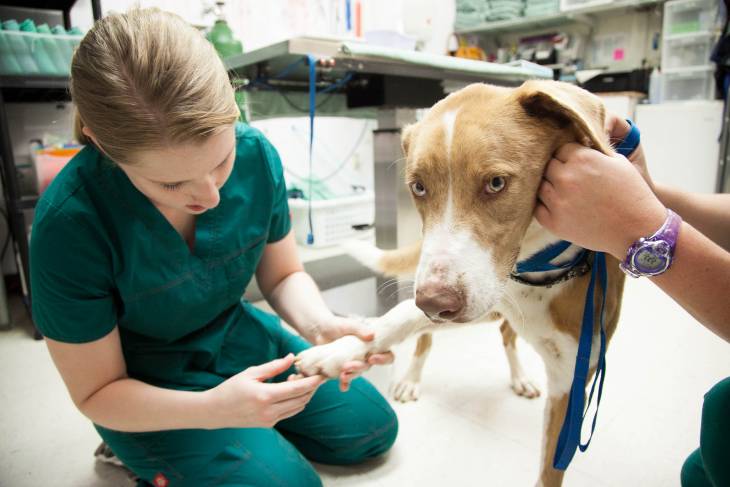Cysts in Dogs! ( Are they a Legitimate Cause for Concern?)
Feeling a cyst on your four-legged friend is one of the most harrowing sensations you can experience as a dog owner. One touch and your mind may cause you to worry about it being connected to some sort of cancerous lump. But how justified is this reaction of fear?
You Can Breathe a Bit Easy
Essentially, a cyst in a dog is a hollow space within tissues that could envelop a liquid or solid material. They can certainly look nasty, and they may be filled with some grotesque goo. And does reputable veterinarian will tell you, a dog cyst should always be examined by a vet.
Much more often than not, a cyst is not going to be cancerous. Like humans, cancer in canines is primarily caused by tumors, which have entirely different mechanics. While some cysts do exhibit cancerous tendencies, chances really are great that you won’t have a thing to worry about.
The Different Types of Dog Cysts
There are five different types of cysts that you can encounter on your pooch. Each version is caused by different reasons, and in some cases, they can be embedded in a dog's DNA. Whatever their origin story, they are worthy of your - and your vet's - attention.
True cysts and dermoid cysts will naturally form on a dog as early as the embryonic stage, and you may not be able to pinpoint their presence until adulthood. Follicular and sebaceous cysts, on the other hand, develop around a dog’s hair and can behave like human acne. Finally, false cysts form around an injury and tend to fill with fluid.
When Does a Cyst Become Something Troublesome?

Sometimes, the best course of action in dealing with a cyst is to take no action at all. For instance, with a sebaceous cyst, your vet may recommend that you don’t touch it at all. Your dog will go about his business as if there’s nothing wrong, and it will eventually go away.
In these situations, the worst thing that can happen with a cyst is when you actually do mess with the growth. If you cut it open, you run the risk of it getting infected with outside bacteria. While this can be typically countered with a topical cream, you may have to end up surgically removing the cyst entirely.
There are times when the cyst will burst all by itself. You’ll be able to tell if it’s going to blow by observing it for any sudden growth to occur. While this may indicate the presence of cancer in some cases, most likely it just means the sucker’s going to pop.
Of course, your very own pup may be the one that ends up bursting the proverbial bubble. If you notice that he has a tendency to itch and scratch the area around the cyst, you should seek treatment from a vet to subdue the issue. Working with a pro to make the cyst disappear is a lot better than having your dog feasting on cyst gunk.
A burst cyst is usually no big deal. However, you may want to clean things up right away, as your pooch may take an interest into lapping up the icky goo. You may also need to get the resultant hole a burst cell leaves behind stitched up by your friendly neighborhood vet.
Beware of Ruptured Cysts Below the Skin
There are times when a cyst that doesn’t emerge from below your dog’s skin will burst. This can result in a highly inflamed area that your dog is likely to aggravate by licking, rubbing, and scratching. If this happens, your vet may prescribe some sort of medication or topical cream to ease the discomfort.
It’s Probably Not Cancer, but Don’t Ignore the Issue
Yes, you may get a wee bit nervous when you see a bumpy protrusion sticking out amongst your dog’s fur. But take a deep breath and be calm. Chances are awfully good that you don’t have anything a thing to worry about.
That being said, just because a cyst is typically harmless, that doesn’t necessarily mean you should just ignore the growth. Keep an eye on it, and make sure your dog doesn’t mess with it on a persistent basis. If things start getting funky, don’t delay - get your vet involved post haste.

